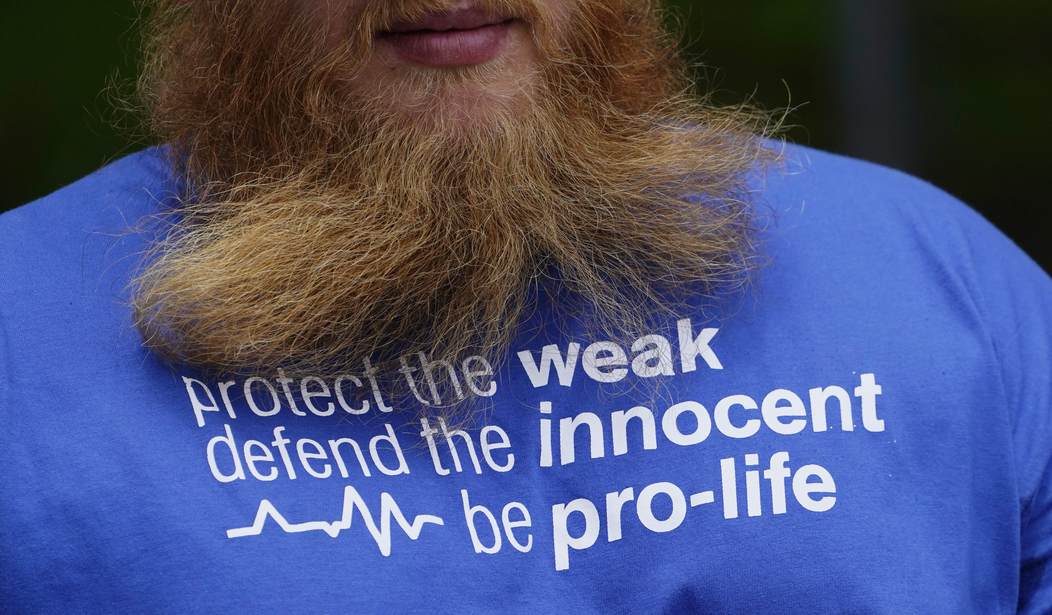On Monday, the U.S. Supreme Court will hear oral arguments in fast-tracked cases to do with a Texas law which bans most abortions once a fetal heartbeat is detected, at around six weeks. A recent poll from the University of Houston-Texas Southern University shows that once adults are more informed about the law, that the ban is triggered by the detection of a fetal heartbeat, they are in support.
According to the Executive Summary of the poll, 69 percent of responds believe that the Texas law is too restrictive. Forty six percent believe that abortion should be legal in most or all cases immediately after six weeks, while 23 percent think it should be legal due to the limited circumstances of rape, incest, or when the mother's life is at risk.
Currently, the law only allows for the exception of when the mother's life is at risk.
But those numbers are quite different, the summary also notes, once respondents are aware of the reasoning behind the ban. Once they are aware it's to do with the detection of a fetal heartbeat, 55 percent support the legislation, including 37 percent who strongly support it, and 45 percent oppose it.
The summary even notes that it's "supported by three-fourths of those Texans whose preferred abortion policy at six weeks is to allow abortion only in the case of rape or incest, exceptions absent from SB 8, in addition to if the mother’s life is at risk."
The poll also later notes:
More refined analysis was carried out of those Texans whose preference for abortion immediately after six weeks is that it be illegal except in cases of rape, incest, or risk to the mother’s life. It turns out that while these Texans would prefer exceptions for rape and incest, when only given the SB 8 option (which only provides for an exception in the event of risk to the mother’s life), an overwhelming majority of 75% support SB 8 while only 25% oppose it.
Recommended
A majority of numerous demographics support the legislation, including whites (55 percent), Latino (58 percent), men (59 percent), women (52 percent), the Boomer/Silent generation (65 percent), Gen X (55 percent), Independents (55 percent), Republicans (74 percent), those who say religion is very important (73 percent), and those who say religion is somewhat important (55 percent). Gen Z respondents are evenly split on whether they support or oppose the legislation, at 50 percent.
A new University of Houston & Texas Southern University poll of Texans shows strong support for the Texas heartbeat bill.
— Michael New (@Michael_J_New) October 27, 2021
Among those with an opinion:
Overall support 55%
Support among men 59%
Support among women 52%
Support among Hispanics 59%
Support among Independents 55%
At certain points the poll refers to "fetal heartbeat" in quotations, though not all times. The law is also only referred to as SB 8, and not by it's title, which is the Texas Heartbeat Act.
It has been a common tactic for mainstream media outlets to refuse to refer to a fetal heartbeat as such or use the law's title. Instead, many use language such as "cardiac activity."
The survey is part of a five-year project "to study Texas’s changing population, with emphasis on the state’s Black, Latino and Asian residents."
This first survey was conducted between October 4 and 21, with 2,067 YouGov respondents 18 years of age or older and a confidence interval of plus or minus 2.2.
In addition to the Texas abortion law cases, the Supreme Court will hear oral arguments for Dobbs v. Jackson on December 1, which will examine the constitutionality of Mississippi's Gestational Age Act, which bans abortions past 15-weeks.
























Join the conversation as a VIP Member